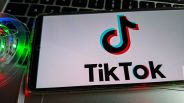Lenovo introduced a 2-in-1 hybrid tablet called the Yoga Book with a Halo Keyboard this year. Models come in either Android and Windows operating system. Next year, the company will release a third variant that will be running on Chrome OS.
A crossover between a tablet and a laptop, Yoga Book offers the technology that allows users to digitize scribbles with pen and paper accurately. The company has found another way to continue the winning streak by introducing a new version, the Yoga Book powered by Chrome OS. Officials confirmed its 2017 release in recent interviews.
The tablet's Halo Keyboard replaced the conventional keyboard with letter keys on a flat surface. The new version will also feature the same drawing capabilities.
Tom's Guide gave Lenovo the "Most Innovative Company of the Year" award for 2016 due to the success of the Yoga Book. The new Chrome OS may help Lenovo keep the advantage when it comes to tablets competition in 2017.
"Over time, we probably see the Android and Chrome versions melding together, especially based on the fact that we've now seen Chrome roll out the Google Play store capability into Chrome," Jeff Meredith, Lenovo's general manager and vice president of Android and Chrome Computing Business Group said."We'll probably maintain the three distinctive products throughout the next year at least," Meredith added.
Lenovo has been praised for reinventing its range of devices. Reviews already applauded the design of the Yoga Book at only 9.6 mm thin. Because of its sleek design, experts believe that the hybrid tablet targets the younger market.
Aside from its notable keyboard, the Yoga Book offers a Full HD screen resolution of 1,920 x 1,200 pixels on both the Windows and Android versions. Both models have an on-board 64 GB storage and a microSD card slot.
The retail price is $499 for the Android version and $549 for Windows. There is no report yet as to when the new Chrome OS-powered model will roll out. Nevertheless, consumers can expect to see three distinct models next year as the officials expressed the intent to keep all versions on the market next year.
Before Yoga Book was released, it was compared with Apple's MacBook Air. However, the two devices seemed to appeal to a different market with Lenovo's hybrid tablet focusing on pen and paper drawing while Apple's new device was an update of its laptop range.
Once the new Chrome OS-powered Yoga Book rolls out by 2017, it may convince conventional users to shift to a more futuristic take on tablets and laptops.
ⓒ 2025 TECHTIMES.com All rights reserved. Do not reproduce without permission.




